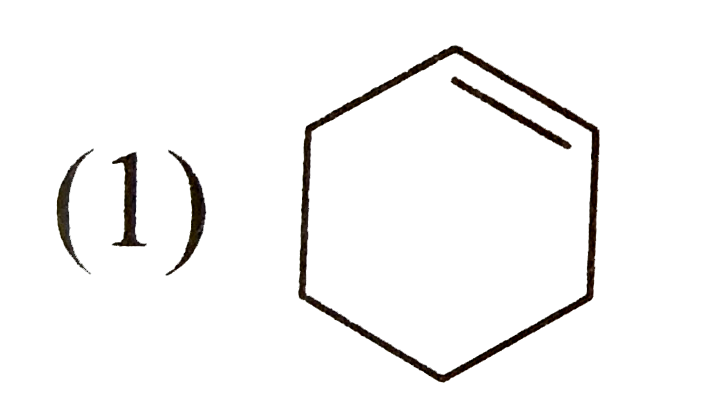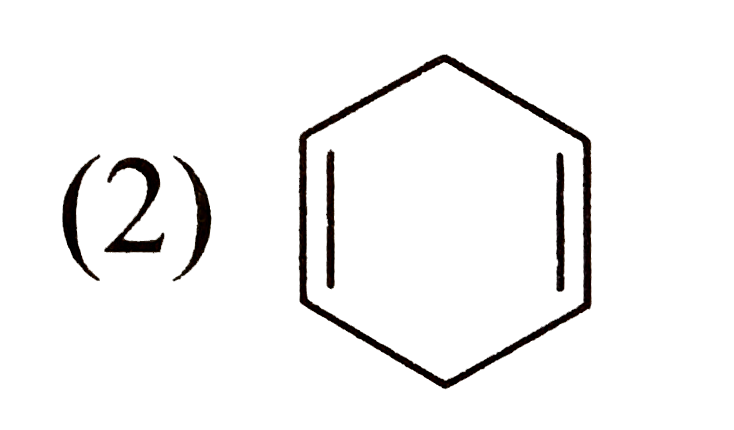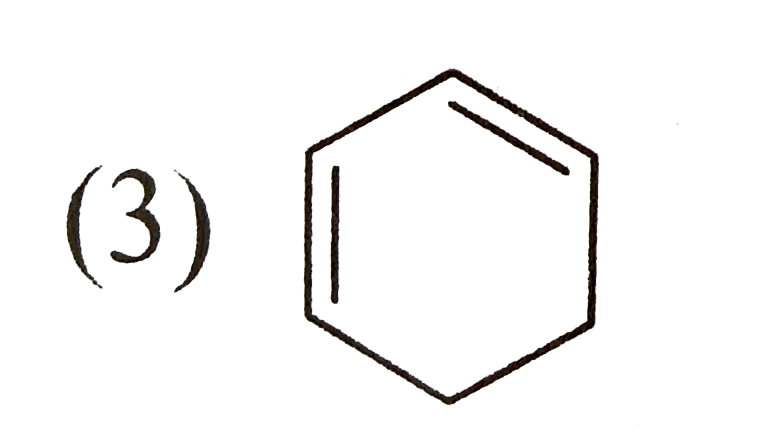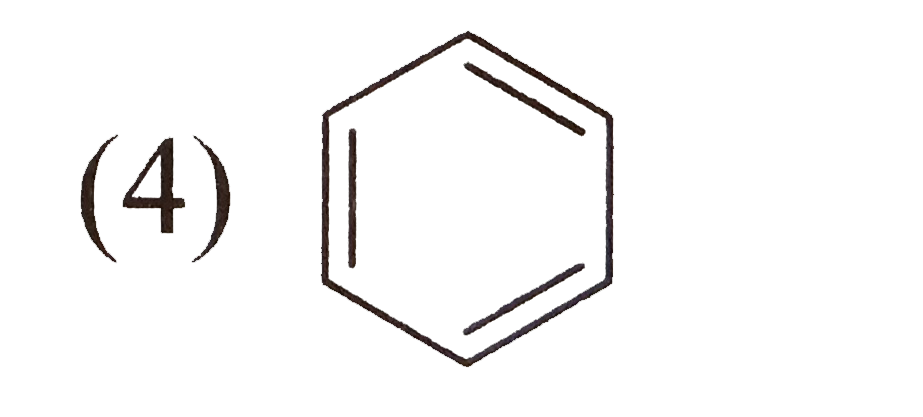Which of the following compounds does not decolorize the red-brown color of a solution of bromine in carbon tetrachloride?




The correct Answer is:4
To determine which compound does not decolorize the red-brown color of a solution of bromine in carbon tetrachloride (CCl4), we need to analyze the reactivity of the given compounds with bromine. The key point to remember is that bromine reacts with unsaturated compounds (like alkenes and alkynes) but does not react with saturated compounds or aromatic compounds due to their stability and resonance structures.
1. Understand the Test: The red-brown color of bromine in CCl4 indicates the presence of bromine molecules. When an unsaturated compound (like an alkene) is added, bromine reacts with it, leading to a decolorization of the solution. This reaction is used to test for unsaturation.
2. Identify the Compounds: List the compounds provided in the question. For example, let's assume we have:
- Compound A: Ethene (C2H4)
- Compound B: Propene (C3H6)
- Compound C: 1,3-Butadiene (C4H6)
- Compound D: Benzene (C6H6)
3. Analyze Each Compound:
- Compound A (Ethene): This is an alkene and will react with bromine, decolorizing the solution.
- Compound B (Propene): This is also an alkene and will react with bromine, decolorizing the solution.
- Compound C (1,3-Butadiene): This compound has conjugated double bonds and will react with bromine, leading to decolorization.
- Compound D (Benzene): Benzene is an aromatic compound. It has a stable resonance structure and does not react with bromine in this context. Therefore, it will not decolorize the bromine solution.
4. Conclusion: Among the listed compounds, Benzene does not decolorize the red-brown color of bromine in CCl4 due to its aromatic stability and resonance.
Final Answer:
Benzene (C6H6) does not decolorize the red-brown color of a solution of bromine in carbon tetrachloride.
- Compound A: Ethene (C2H4)
- Compound B: Propene (C3H6)
- Compound C: 1,3-Butadiene (C4H6)
- Compound D: Benzene (C6H6)
- Compound A (Ethene): This is an alkene and will react with bromine, decolorizing the solution.
- Compound B (Propene): This is also an alkene and will react with bromine, decolorizing the solution.
- Compound C (1,3-Butadiene): This compound has conjugated double bonds and will react with bromine, leading to decolorization.
- Compound D (Benzene): Benzene is an aromatic compound. It has a stable resonance structure and does not react with bromine in this context. Therefore, it will not decolorize the bromine solution.
Benzene (C6H6) does not decolorize the red-brown color of a solution of bromine in carbon tetrachloride.
Topper's Solved these Questions
- AROMATIC HYDROCARBONSBOOK - R SHARMACHAPTER - AROMATIC HYDROCARBONSEXERCISE - Follow up Test 3
8 Videos
- AROMATIC HYDROCARBONSBOOK - R SHARMACHAPTER - AROMATIC HYDROCARBONSEXERCISE - Follow up Test 4
12 Videos
- AROMATIC HYDROCARBONSBOOK - R SHARMACHAPTER - AROMATIC HYDROCARBONSEXERCISE - Follow up Test 1
10 Videos
- ALKYNESBOOK - R SHARMACHAPTER - ALKYNESEXERCISE - Archives
42 Videos
- CHEMICAL BONDINGBOOK - R SHARMACHAPTER - CHEMICAL BONDINGEXERCISE - Archives
73 Videos
Similar Questions
Knowledge Check
Which of the following compounds is brown coloured?
AFe[Fe(CN)4]BFe[Fe(CN)6]CFe4[Fe(CN)6]DK2Fe[Fe(CN)6]Which of the following compounds are red in color ?
AAg2CrO4BCrO2Cl2CK2Cr2O7DCu2OWhich of the following compounds is brown coloured?
A(a) Fe[Fe(CN)4]B(b) Fe4[Fe(CN)6]C(c) Fe[Fe(CN)6]D(d) K2Fe[Fe(CN)6]
Which of the following compound does not react with Fehling's solution?
View SolutionWhich of the following hydrocarbons does not decolourise bromine water?
View SolutionWhich one of the following compounds does not react with Fehling solution ?
View SolutionWhich of the following does not decolourise bromine solution in carbon disulphide
View SolutionOne of the following organic compounds cannot decolorize the red brown color of bromine water .This compound is :
View Solution
